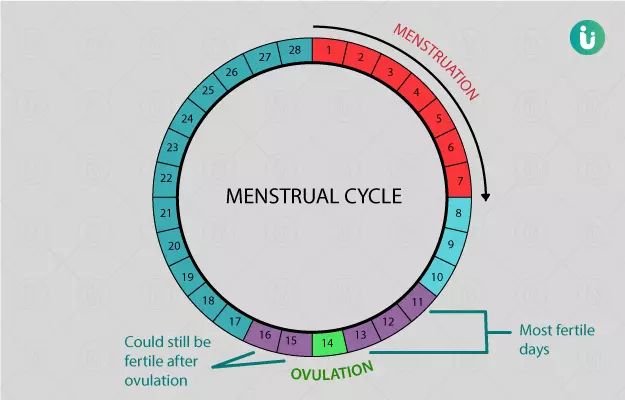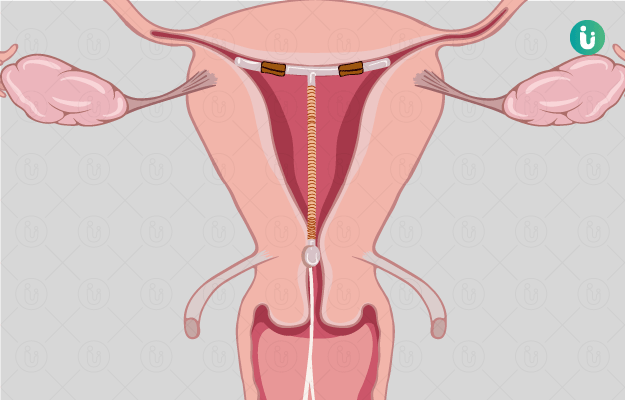Indubitably, the best time to get pregnant is right after your ovulation occurs. Experts say that the chances of conception are the best if fertilisation occurs within 4 to 6 hours of ovulation. Maybe it is not possible to time intercourse so relative to your ovulation cycle. But, the closer it is to your ovulation, the higher are the chances of fertilisation.
But, how do you know that you are ovulating?
For most women, ovulation occurs 14 days prior to the beginning of the next menstruation cycle. So, if you have a healthy menstrual cycle, you may be able to predict this easily. It will most likely fall in the mid of your two cycles. If you find it hard to guess, you can use an ovulation tracker.
Commercially available trackers determine the time of ovulation by detecting for an upsurge in LH or the luteinising hormone. It is available in the form of 5 to 7 sticks, which you may need to use multiple times to determine the surge before ovulation. Gynaecologists recommend using this kit multiple times, counting 11th day from the beginning of your previous cycle. Checking every day following this period is important so that you not miss the surge. Following the LH surge, ovulation occurs within 24 to 36 hours.
Once you know you are ovulating, it is easy to determine the best time to have sex to favour pregnancy. It is said that 12 to 24 hours after the time of ovulation marks the period of maximum fertility and you must have sex within this duration in order to conceive. The ova is only available for a duration of 12 to 24 hours after it has been released.
Doctors say that the fertility window of a woman is between 10 to 17 days before the beginning of the next cycle. So, if you are unable to track ovulation, it is a great idea to stick to the normal fertility window in order to be pregnant. However, this time period varies from woman to woman, according to their menstruation cycle and hormonal levels, so it is the best to be aware of your ovulatory cycle.
What are the signs of ovulation?
You can be aware of ovulation by noticing the body changes. Since it is the most fertile period of the woman’s cycle, some women often experience mild spotting. This indicates that ovulation has occurred and you can have sex within 12 to 24 hours. However, if you experience heavy vaginal bleeding or often face spotting, it may be a matter of concern and you must see your doctor. Other ways you can know you are ovulating is by an increased sex drive and the presence of sticky white vaginal secretions often resembling egg white. Some women may even face mild abdominal pain.
(Read more: Can you get pregnant before, after or during your period)

































